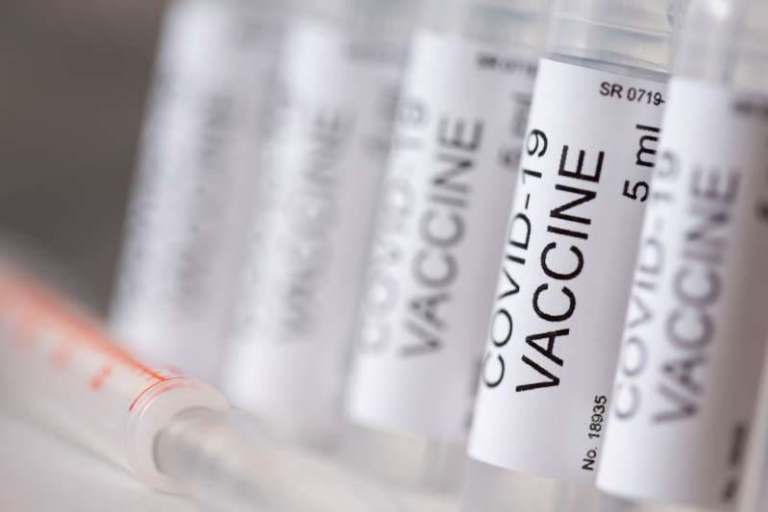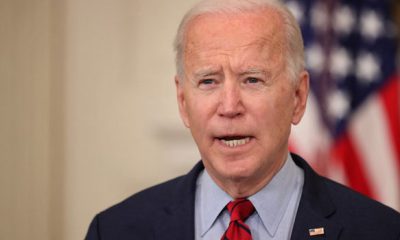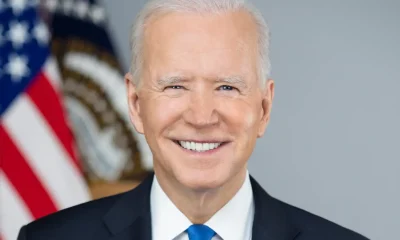Health
United States: Expert Committee Recommends Pfizer Vaccine For 5-11 Year Olds

American expert committee spoke out on Tuesday in favour of immunizing 5-11-year-olds with the Covid-19 vaccine from Pfizer-BioNTech, presaging a very imminent authorization of the remedy for some 28 million children in the United States.
The advice of this committee is only advisory, but it is rare that it is not followed by the United States Medicines Agency (FDA). If the latter actually authorizes the vaccine for this age group, the injections could begin as early as November.
Composed of independent scientists (immunologists, experts in infectious diseases, paediatrics, etc.), the committee reviewed the data gathered by Pfizer and the health authorities.
At the end of a day of discussions, broadcast live on the internet, its members estimated that the benefits of the vaccine for children aged 5 to 11 outweighed the risks (17 votes in favour, one abstention).
Children “are far from being spared from the damage of Covid-19”, recalled Peter Marks, of the FDA, in the introduction.
Among 5 to 11-year-olds, more than 1.9 million cases of Covid-19 have been recorded since the start of the pandemic in the United States, more than 8,300 hospitalizations, and a hundred deaths, he detailed.
Children catching the virus can develop pediatric multisystem inflammatory syndrome (MIS-C), or even a “long Covid”.
Point of debate: myocarditis
To support its request for authorization, Pfizer presented the results of a clinical trial that demonstrated the vaccine’s 90.7% efficacy in preventing symptomatic forms of the disease in children aged 5 to 11.
“Vaccination will help ensure in-person learning” at school, “crucial for children’s development,” argued William Gruber, manager at Pfizer. In addition, children “play an important role in the transmission” of the virus within the general population, he added.
Prior to the meeting, the FDA had released its own interpretation of the data, clearly pointing in favor of authorization.
The main point of debate concerns the risk of vaccine-induced myocarditis. This inflammation of the heart muscle is a side effect that has been particularly detected in adolescents and young adults (especially men) after Pfizer or Moderna.
Health authorities have confirmed nearly 880 cases (more than 600 remain to be assessed), of which around 830 required hospitalization. At least about 790 have since returned home, and no deaths have been recorded.
Among the 3,000 children vaccinated in total during Pfizer’s clinical trials, no cases of myocarditis were detected. Experts believe this side effect should be rarer in young children, as it could be linked to testosterone levels.
This does not mean that the risk is absent. But the FDA analysis predicts that the number of “clinically significant problems” linked to Covid-19 avoided thanks to the vaccine “would clearly counterbalance the surplus of myocarditis cases”.
Committee member Dr Paul Offit said he was reassured that the dosage for children was lower (10 micrograms per injection instead of 30 for older groups).
Many experts still found the issue difficult to decide and stressed the need to monitor the data once the immunization campaign is launched.
Convince parents
When the FDA has given the green light, a committee of experts from the Centers for Disease Prevention and Control (CDC) will in turn meet on November 2 and 3 on the subject, and this federal agency will then publish its recommendations to health professionals administering the doses.
As with adults and adolescents, the vaccine requires two injections, three weeks apart.
The caps of the vials intended for children will be orange, and thus easily recognizable compared to the purple caps of the vials for the older age groups.
The White House has indicated that it is ready to send millions of doses to the four corners of the country.
Children can be vaccinated by pediatricians, pharmacies or even certain schools.
But it will still be necessary to convince.
According to a Kaiser Family Foundation poll at the end of September, about a third of parents said they would vaccinate their child as soon as possible, another third that they would wait before making a decision, and a quarter that they would not. vaccinate.












